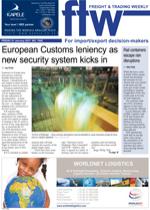In an earlier issue we
introduced “Free Carrier”
or “FCA” (named place of
delivery) as the second of
the Incoterms for the class
“Rules for any Mode or
Modes of Transport”. This
means that it can be used
irrespective of the selected
mode of transport, and can
even be used for more than
one mode of transport.
While FCA is more
suitable for international
trade, Ex Works (EXW) –
the first Incoterms®2010
– is more suitable for
domestic trade.
In the introduction
of the FCA term and in
subsequent issues we
briefly highlighted the ten
seller’s obligations and the
ten buyer’s obligations.
This part serves to
summarise and conclude
the term.
According to the
International Chamber of
Commerce (ICC) FCA, at
a named place of delivery,
means that the “seller
delivers the goods to the
carrier or another person
nominated by the buyer
at the seller’s premises or
another named place. The
parties are well advised
to specify as clearly as
possible the point within
the named place of
delivery, as the risk passes
to the buyer at that point”.
In the instance of
delivery, the address of
the premises at which
delivery should be
made must be clearly
identified. In accordance
with Incoterms®2010’s
FCA, the seller must,
where applicable, clear
the goods for export.
The seller, however, does
not have any obligation
with respect to the
clearance of the goods
for import, or for the
payment of the customs
duty, or for carrying out
of any customs import
formalities.
Remember that for
reference purposes you
may want to consult the
ICC’s “Incoterms®2010
– ICC Rules for the
use of Domestic and
International Trade
Terms”.
In the next issue we will
define the third Incoterms
– Carriage Paid To (CPT).
Learning more about Incoterms®2010
21 Jan 2011 - by Staff reporter
0 Comments
FTW - 21 Jan 11

21 Jan 2011
21 Jan 2011
21 Jan 2011
21 Jan 2011
21 Jan 2011
21 Jan 2011
21 Jan 2011
21 Jan 2011
21 Jan 2011
Border Beat
Poll
Featured Jobs
New
